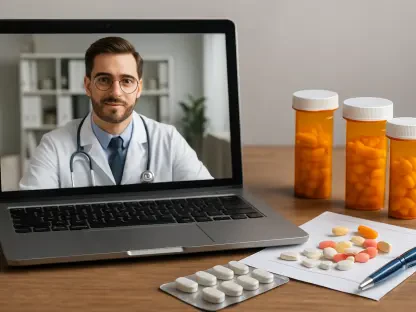In a state renowned for its contributions to medical research and public health, a looming crisis threatens to unravel decades of progress at UConn Health, Connecticut’s sole public academic medical center, due to recent federal policy shifts and significant state budget reductions. These challenges have placed immense pressure on the institution’s ability to deliver critical healthcare services, conduct groundbreaking research, and sustain economic vitality. The convergence of political interference in scientific endeavors and drastic funding cuts has sparked alarm among faculty and stakeholders, highlighting an urgent need for legislative intervention. This situation not only jeopardizes the health center’s mission but also poses broader risks to the state’s economy and access to equitable care for vulnerable populations. As these challenges mount, the call for action grows louder, urging lawmakers to step in and shield this vital institution from an unprecedented storm of external pressures.
Addressing the Policy Threats to Academic Integrity
Navigating Federal Interference in Research
The landscape of academic research at UConn Health faces a profound threat from federal policies that prioritize political oversight over scientific merit. A recent executive order has shifted the evaluation of research grants at the National Institutes of Health (NIH) from expert peer review to politically influenced scrutiny, undermining the credibility of scientific inquiry. This change directly impacts UConn Health, with the cancellation of $1.7 million in research grants already disrupting vital projects. Furthermore, proposed reductions in indirect cost reimbursements could strip the institution of up to $35 million annually, threatening infrastructure and endangering nearly 750 research positions. Such measures not only stifle innovation but also erode the foundational principles of academic freedom that have long driven medical advancements in Connecticut. The implications of this interference extend beyond campus borders, risking the state’s reputation as a hub for cutting-edge research and potentially deterring top talent from contributing to its scientific community.
Economic Fallout from Research Funding Cuts
Beyond the immediate impact on academic pursuits, the economic consequences of these federal cuts are staggering for Connecticut. NIH funding has historically been a cornerstone of the state’s economy, with substantial grants supporting thousands of jobs and generating billions in economic activity. Current estimates suggest that continued reductions could jeopardize approximately 2,650 jobs tied to federal research funding, prompting fears of a “brain drain” as skilled professionals seek opportunities elsewhere. The ripple effects would be felt across industries, as diminished research capacity at UConn Health translates to fewer innovations and partnerships that fuel economic growth. This financial strain also threatens the stability of local communities reliant on the health center’s contributions, amplifying the urgency for state lawmakers to counteract these losses. Protecting research funding is not merely an academic concern but a critical step in safeguarding Connecticut’s economic future against the backdrop of federal policy shifts.
Safeguarding Healthcare Access and Public Good
Impact of Federal Healthcare Cuts on Patient Care
The challenges facing UConn Health extend into the realm of patient care, where federal cuts to Medicaid, Medicare, and Affordable Care Act subsidies are poised to create significant deficits. Projections indicate losses ranging from $25 to $40 million due to these reductions, severely limiting the institution’s capacity to serve a growing number of uninsured patients. Additionally, potential changes to eligibility for the 340B drug pricing program could result in further losses of $49 to $69 million, compounding the strain on resources. As a result, access to primary care for vulnerable populations is at risk, often forcing individuals to rely on costly emergency services instead. This shift not only burdens the health center financially but also diminishes the quality of care available to those most in need. Addressing these cuts is essential to maintaining UConn Health’s role as a safety net for the state’s underserved communities, ensuring that healthcare remains a right rather than a privilege.
Legislative Action to Support Vulnerable Populations
Amid these healthcare funding challenges, the need for targeted legislative support has never been clearer. State budget cuts of $61.5 million to UConn Health have exacerbated the impact of federal reductions, creating a perfect storm that threatens both patient care and specialized research into health equity and stigmatized areas like LGBTQ+ studies. Lawmakers are being urged to convene a special session of the General Assembly to allocate emergency resources and offset these combined losses. Such action would enable UConn Health to meet rising patient demands while continuing to provide essential services and research for marginalized groups. The broader public good hinges on sustaining these efforts, as the health center’s ability to innovate and care for diverse populations directly influences statewide health outcomes. Without swift intervention, the erosion of these programs could have lasting consequences, deepening disparities and undermining Connecticut’s commitment to equitable healthcare access.
Charting a Path Forward for UConn Health
Building Resilience Through State Support
Reflecting on the multifaceted crisis that unfolded, state support emerged as a critical lifeline for UConn Health after intense advocacy from faculty and stakeholders. Lawmakers were pressed to recognize the interconnected threats to academic freedom, healthcare delivery, and economic stability that had taken hold. The response focused on securing emergency funding to bridge the gaps left by federal and state cuts, ensuring the institution could maintain its research infrastructure and patient care services. This strategic intervention aimed to preserve nearly 750 research positions and prevent the loss of millions in potential revenue. By prioritizing these allocations, the state took a decisive step toward stabilizing the health center, acknowledging its role as a pillar of public health and innovation. The efforts underscored a commitment to protecting the integrity of scientific inquiry against political overreach, setting a precedent for resilience in the face of external pressures.
Future Considerations for Sustainable Funding
Looking ahead, the path to long-term sustainability for UConn Health demands innovative solutions and ongoing collaboration between state officials and institutional leaders. Discussions center on establishing dedicated funding mechanisms to shield the health center from future federal policy fluctuations, such as creating a state-backed reserve fund for research and healthcare initiatives. Additionally, exploring public-private partnerships has been proposed to bolster economic contributions and retain top talent within Connecticut. Advocates emphasize the importance of continuous legislative oversight to monitor the impacts of federal changes on Medicaid and Medicare, ensuring timely adjustments to state budgets. These forward-thinking measures aim to fortify UConn Health’s capacity to serve as a beacon of medical excellence and equity. By investing in these strategies, the state can safeguard its public health infrastructure and economic vitality, paving the way for a more secure future for all residents.









